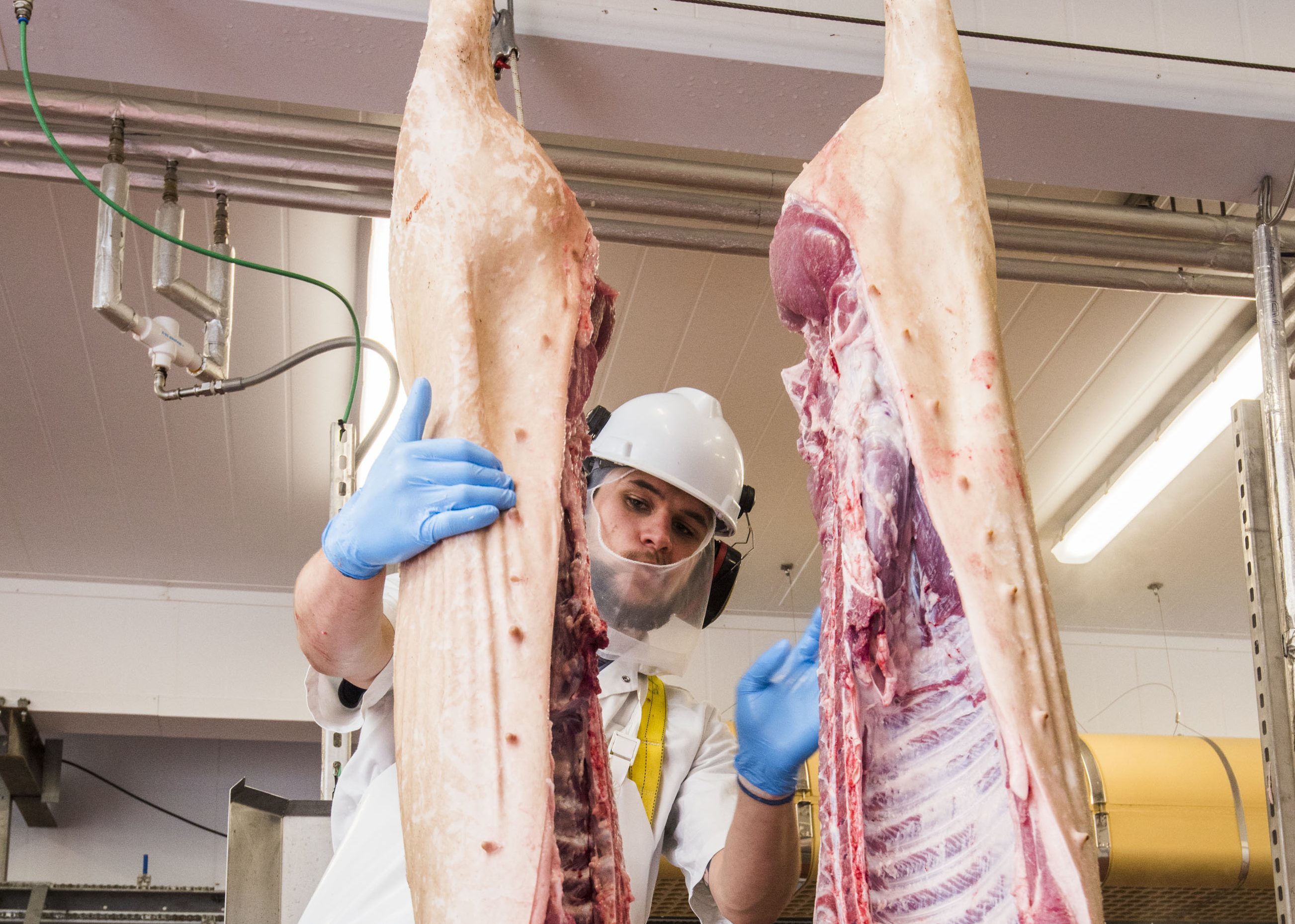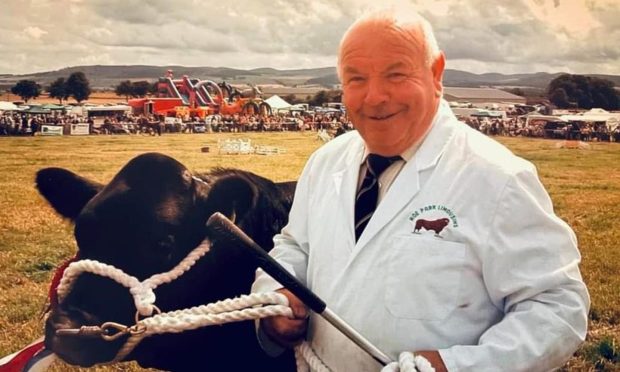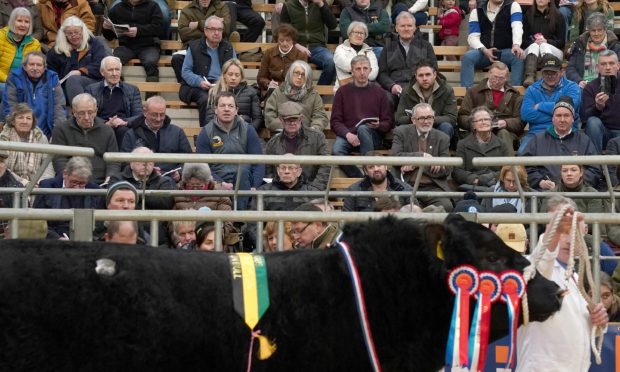Scotland’s pigmeat sector projected a confident, upbeat image when farmers from across the north east gathered in Brechin to celebrate the opening of the town’s refurbished £10 million abattoir.
It was the most auspicious day for the sector since the closure of Vion’s processing plant at Broxburn in 2012 which led to the loss of 1700 jobs and cast a long shadow over the industry. Earlier this year pigmeat prices tumbled to an unprofitable 112p/kg and the Scottish pig herd has declined by around 50% since the 1990s.
Quality Pork Ltd (QPL), the company formed by a collaboration between pig farmers and the major processor Tulip Ltd, led to the £10million investment in the Brechin abattoir and changed the outlook for the industry.
The post-referendum fall in sterling and the subsequent boost that meant for pigmeat prices, also helped.
QPL owns the new state-of-the-art plant which is currently processing 4500 pigs/week and has ambitions to meet its capacity of 7500/week, so long as enough retailers and supermarket chains can be persuaded to buy Scottish pigmeat.
To succeed, the company also needs the 70 farmers who currently supply the plant to increase sow numbers, or for more pigs to be finished in Scotland. A major push has now started to persuade Scottish producers to get involved in pig production and sign up to become members of QPL.
QPL chairman, Roderic Bruce said the collaboration between Scottish Pig Producers, Scotlean and Tulip Ltd would play an important part in reversing the decline of the Scottish pig herd.
“With a good processing facility we hope we can arrest that decline and reverse it,” he said.
“It frustrates me to see so much grain from the north east of Scotland being exported to Europe and then coming back here as pigmeat when we can do a perfectly good job producing those pigs here.”
Mr Bruce, who farms 350 sows in Aberdeenshire, said a huge amount of work had gone into securing the long-term future of the Scottish pig industry and the abattoir was a critical part of the plan.
“The group of farmers here today are probably the most optimistic, confident bunch of farmers you’ll find anywhere in the industry at the moment. There’s been interest from people outwith pig farming, looking for something else to supplement their income. Subsidies are dwindling and there are less and less opportunities.”
Mr Bruce added that this year’s downturn in pig prices had been far shorter and less severe that producers had feared.
“None of us would have expected the price [of 140p/kg] we’re getting at the moment. We’ve never seen a turnaround that’s so quick. But I’m a realist, I know it can go up and down.”
The refurbished Brechin facility boasts a modern lairage, kill line, rapid carcass chill system and lorry wash and was supported with a grant of £2.7million from the Scottish Government.
Employment has more than doubled to 58 staff, making it one of the largest employers in Angus.
The plant slaughters and processes the pigs into primal cuts, with the pork then delivered to Tulip Ltd’s network of sites to be further processed into a wide variety of food products, before being supplied to a range of retail and wholesale customers across the UK.
Tulip Ltd’s farming director, Andrew Saunders said he didn’t envisage any further butchering taking place at Brechin “in the near future”, but emphasised that while the pigmeat went south to be butchered, the end product was still classed as Scottish – so long as it was born, bred and finished here.
He added that more throughput of pigs would make it easier for the company to consider an investment in further butchering at Brechin. However he pointed out that saying a product was Scottish was not enough to make it stand out.
He said: “We need other unique selling points around quality control, standardisation and local raw material sourcing. We need to build on ‘Scottish’ because ‘Scottish’ in itself – with all due respect – isn’t enough.”
Mr Saunders said the Brechin facility was a great example of what could be achieved through a collaboration between farmer producers and processors combining their pig farming and food manufacturing with the skills and experience of the Scottish pig farming community.
He added: “We are incredibly proud to be able to source quality Scottish pork and will continue to work with QPL to assist it in helping to shape the future of the Scottish pig industry.”










